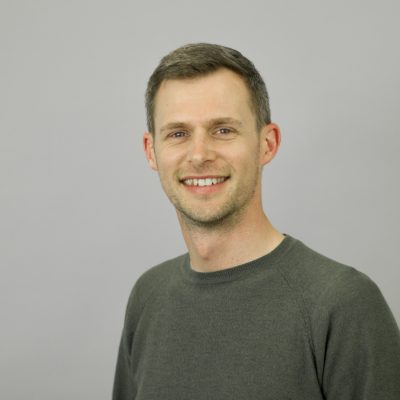It’s a moment I will never forget. I was stood in hospital scrubs, surrounded by people I’d only just met. A lady behind me says, “Mr Powney,” and I turn around, constantly trying to take everything in. “Would you like to hold your two daughters?” she asks.
Before I know it I’m stood there holding two tiny, precious babies. My wife had already held both babies, and I’d marvelled at watching her with these two new humans. But now I’m stood holding one in each arm, looking down into these new faces I’d never seen before. It was a moment so full of significance, I’m only just starting to process it.
I found the early days of new parenthood brutal. Combine being thrown into a new situation with no real idea what you’re meant to do, add in very little sleep and two human beings who were (and still are) completely dependent on you to survive, and you have a fairly overwhelming situation. Yet during that, one of the comments my wife and I kept saying to each other was how our daughters were completely trusting of us in their state of vulnerability.
Their total dependence on us oddly caused me to reflect on the other end of life. The final years of life for my granny were extremely difficult and by the end she was again dependent on others for her own survival. She had to trust those around her as she could do nothing for herself and again, was in a state of vulnerability. All of us start life as vulnerable human beings and many of us end life in a similar state of vulnerability.
The funny thing is, for the bit in between birth and death, many of us like to think we find ways of protecting ourselves. As a 20-year-old lad at university, I felt fairly insusceptible to the risks of life. Until one day when I woke up in agony and finished that day in a hospital bed. My own pancreas was attacking me. I was back in a place of utter dependence on others. My parents had to wash me, just like I now wash our baby daughters. Nurses monitored me and emptied my catheter bag. The fragility of life and my own vulnerability was all around me.
While we may try to shield ourselves from our vulnerable state as human beings, vulnerability is a core component of what it means to be human. I might be more comfortable highlighting the vulnerability of my baby daughters, my granny or my uncle with learning disabilities but if I don’t allow their experience of being human to shine a light on my own humanity, I’m missing something.
At the heart of the Christian faith is an astonishing idea. God became a human being. And God didn’t jump straight into the middle of life. He came as a baby, totally defenceless, completely trusting of Mary and Joseph and in need of their protection. God humbled himself (Philippians 2:6 – 8). He became vulnerable. This was a concept that I knew before the start of this year. It’s one that has become far more real as I’ve lived with two babies for nine months.
What does all this tell us about what it means to be human?
Here’s what it tells me: first, the most vulnerable in our society provide a unique insight into the character of God and what it means to be made in the image of the God who made Himself vulnerable. Second, life is fragile and none of us are invincible. Even though that thought makes life seem a bit scarier, it reminds us that we need each other. Our strength doesn’t come from trying to do it all by ourselves. To be human is to be vulnerable with one another, acknowledging our weaknesses and trusting in the care and love of those around us. We are made for connection.



